Covenant Theology Quotes & Sayings
Enjoy reading and share 13 famous quotes about Covenant Theology with everyone.
Top Covenant Theology Quotes

A covenant differs from a contract almost as much as marriage differs from prostitution. — Scott Hahn
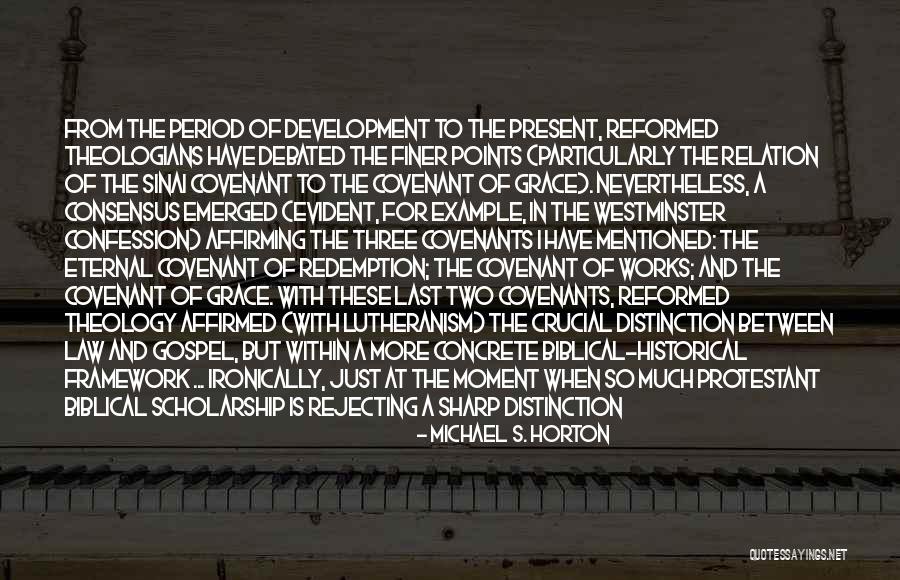
From the period of development to the present, Reformed theologians have debated the finer points (particularly the relation of the Sinai covenant to the covenant of grace). Nevertheless, a consensus emerged (evident, for example, in the Westminster Confession) affirming the three covenants I have mentioned: the eternal covenant of redemption; the covenant of works; and the covenant of grace. With these last two covenants, Reformed theology affirmed (with Lutheranism) the crucial distinction between law and gospel, but within a more concrete biblical-historical framework ... Ironically, just at the moment when so much Protestant biblical scholarship is rejecting a sharp distinction between law and gospel, Ancient Near Eastern scholars from Jewish and Roman Catholic traditions have demonstrated the accuracy of that seminal distinction between covenant of law and covenants of promise. P.13 — Michael S. Horton

My concern with this is not about who owns the trademark. If a label is used chiefly to lionize "us" and demonize "them," we'd be better off without it. Rather, my concern is that the richness and breadth of Reformed faith and practice are being reduced to a few doctrines. In the process, even those doctrines lose much of their supporting rationale. In fact, their meaning changes at crucial points. For example, I believe that the doctrine of election is inextricably bound up with covenant theology and with the covenantal life that is shaped in the New Testament by the means of grace. As I have argued, even "eternal security" is different from the doctrine of perseverance. — Michael S. Horton
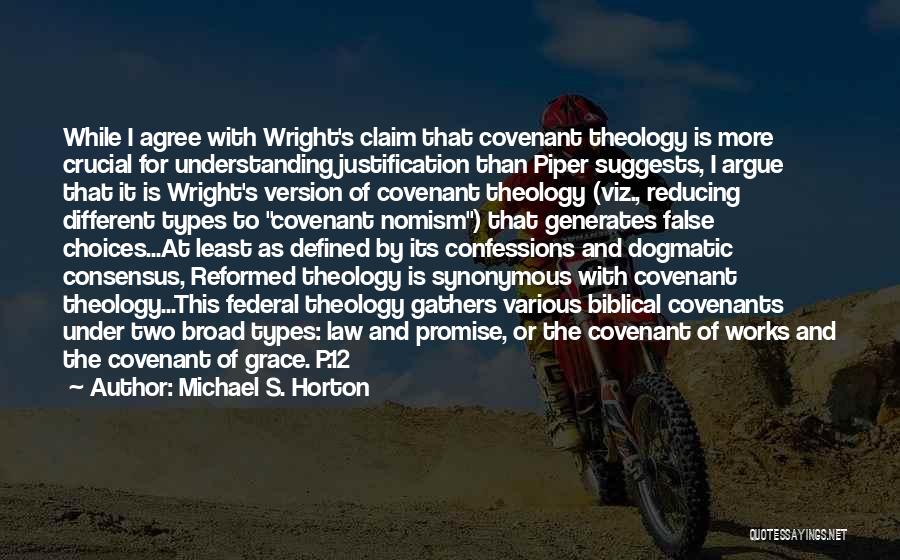
While I agree with Wright's claim that covenant theology is more crucial for understanding justification than Piper suggests, I argue that it is Wright's version of covenant theology (viz., reducing different types to "covenant nomism") that generates false choices...At least as defined by its confessions and dogmatic consensus, Reformed theology is synonymous with covenant theology...This federal theology gathers various biblical covenants under two broad types: law and promise, or the covenant of works and the covenant of grace. P.12 — Michael S. Horton
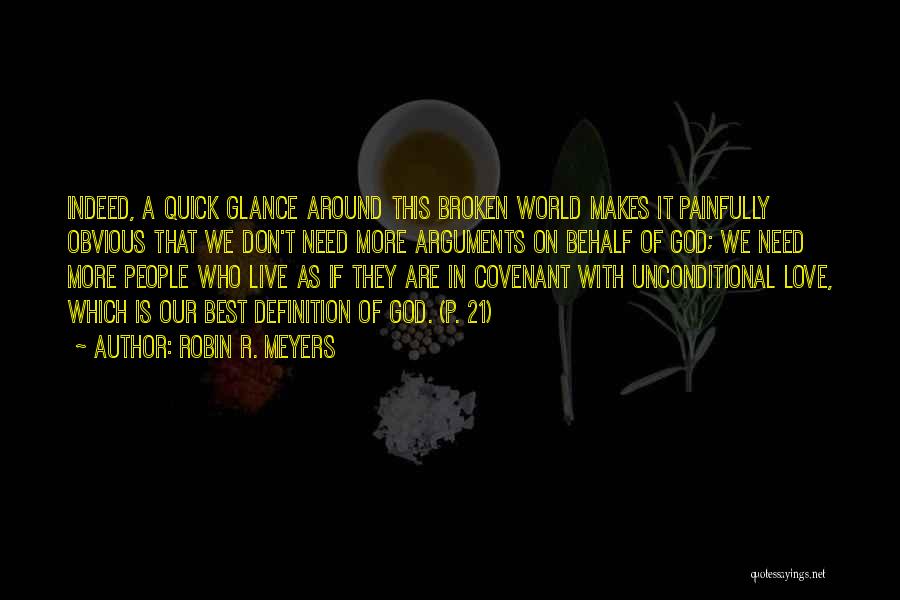
Indeed, a quick glance around this broken world makes it painfully obvious that we don't need more arguments on behalf of God; we need more people who live as if they are in covenant with Unconditional Love, which is our best definition of God. (p. 21) — Robin R. Meyers
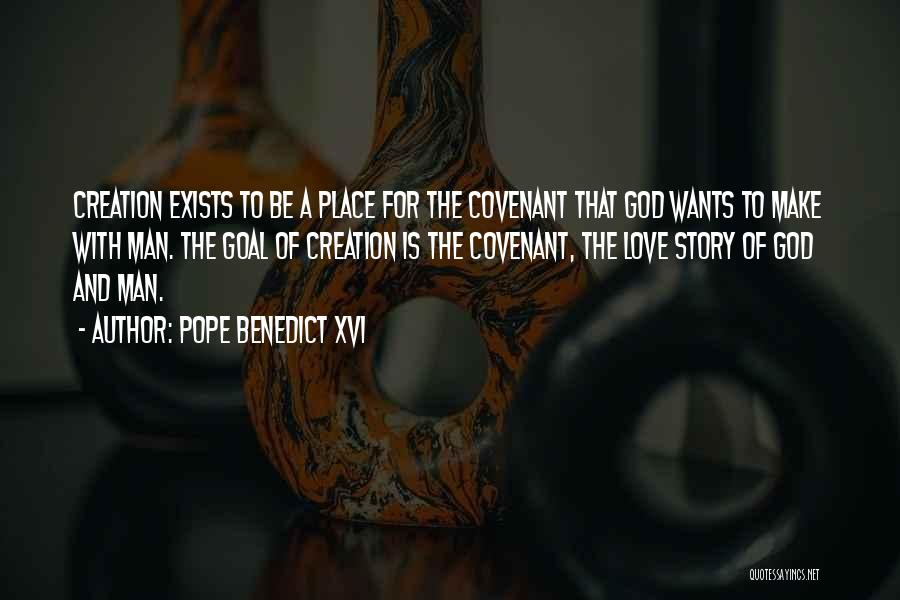
Creation exists to be a place for the covenant that God wants to make with man. The goal of creation is the covenant, the love story of God and man. — Pope Benedict XVI
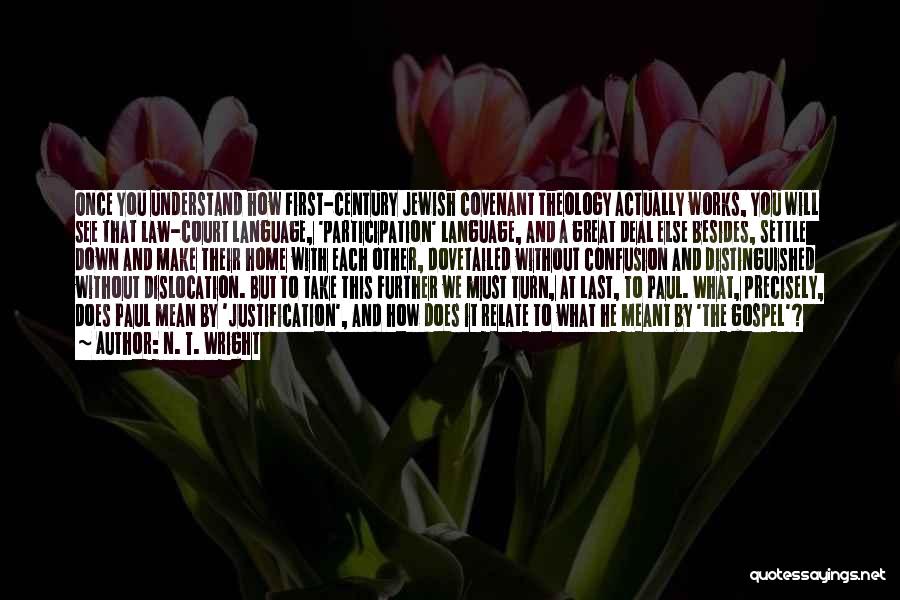
Once you understand how first-century Jewish covenant theology actually works, you will see that law-court language, 'participation' language, and a great deal else besides, settle down and make their home with each other, dovetailed without confusion and distinguished without dislocation. But to take this further we must turn, at last, to Paul. What, precisely, does Paul mean by 'justification', and how does it relate to what he meant by 'the gospel'? — N. T. Wright
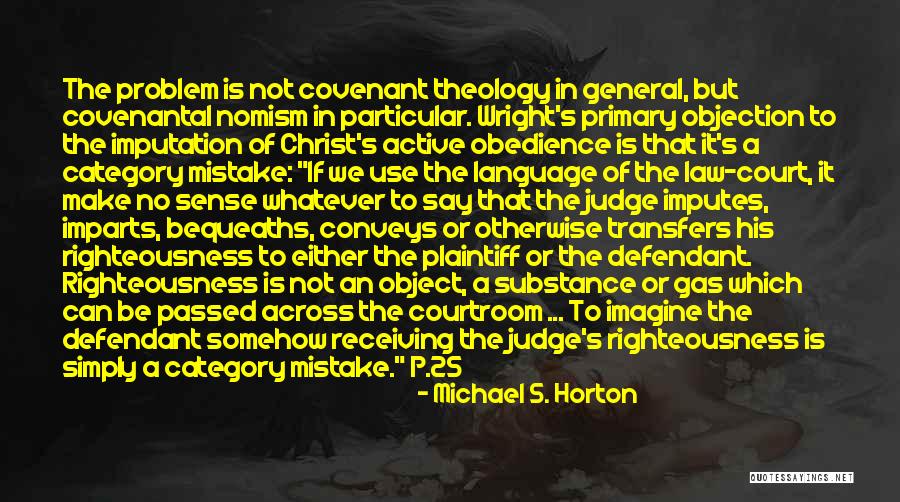
The problem is not covenant theology in general, but covenantal nomism in particular. Wright's primary objection to the imputation of Christ's active obedience is that it's a category mistake: "If we use the language of the law-court, it make no sense whatever to say that the judge imputes, imparts, bequeaths, conveys or otherwise transfers his righteousness to either the plaintiff or the defendant. Righteousness is not an object, a substance or gas which can be passed across the courtroom ... To imagine the defendant somehow receiving the judge's righteousness is simply a category mistake." P.25 — Michael S. Horton
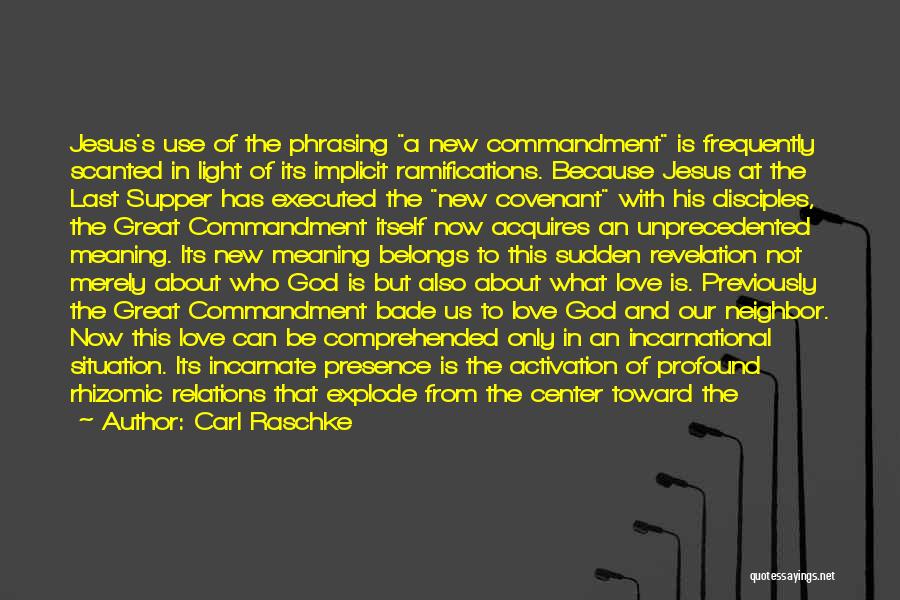
Jesus's use of the phrasing "a new commandment" is frequently scanted in light of its implicit ramifications. Because Jesus at the Last Supper has executed the "new covenant" with his disciples, the Great Commandment itself now acquires an unprecedented meaning. Its new meaning belongs to this sudden revelation not merely about who God is but also about what love is. Previously the Great Commandment bade us to love God and our neighbor. Now this love can be comprehended only in an incarnational situation. Its incarnate presence is the activation of profound rhizomic relations that explode from the center toward the ends of the earth. We are commanded to be incarnational in relation to one another just as God at the cross was incarnational in Christ ... We are no longer simply Christ's "followers" - the pre-Easter form of relation to a master-and-teacher that is conventionally called "disciple" - but also perpetual Christ incarnators ... — Carl Raschke
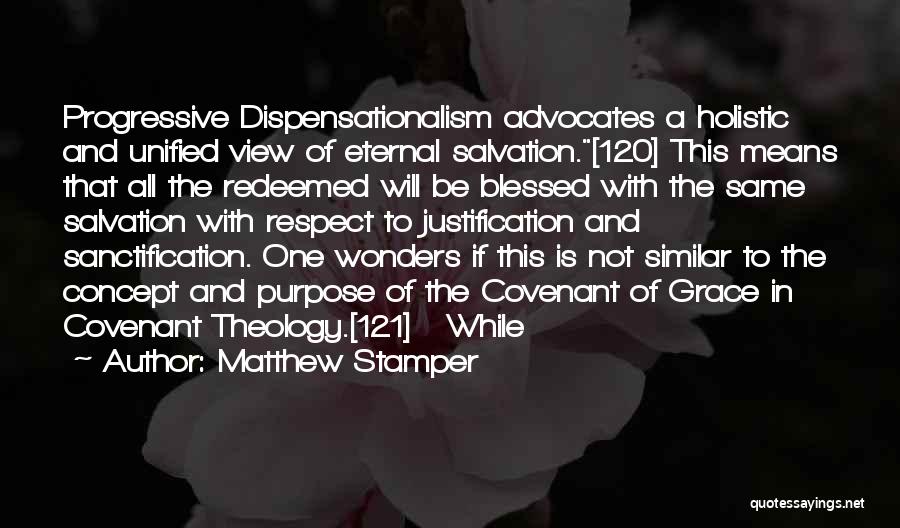
Progressive Dispensationalism advocates a holistic and unified view of eternal salvation."[120] This means that all the redeemed will be blessed with the same salvation with respect to justification and sanctification. One wonders if this is not similar to the concept and purpose of the Covenant of Grace in Covenant Theology.[121] While — Matthew Stamper
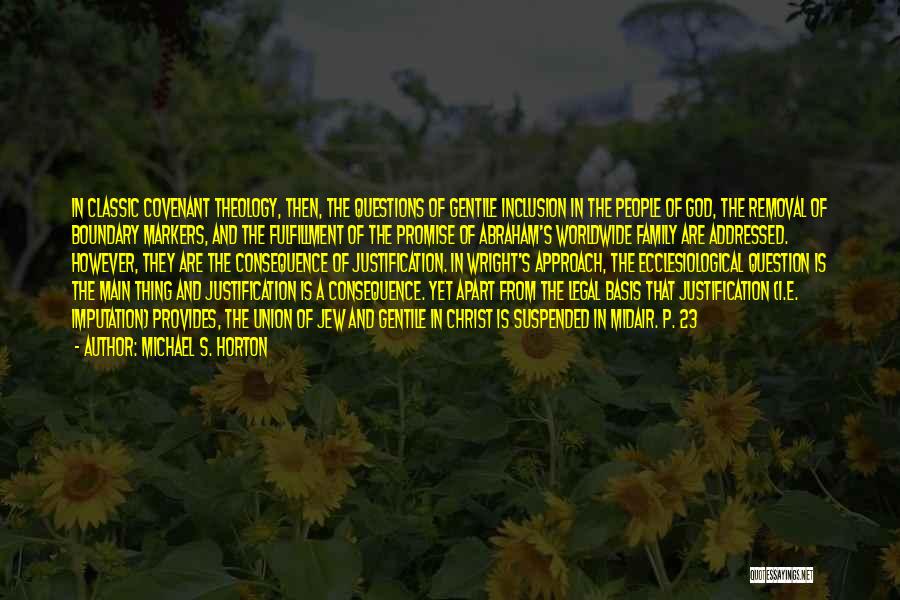
In classic covenant theology, then, the questions of Gentile inclusion in the people of God, the removal of boundary markers, and the fulfillment of the promise of Abraham's worldwide family are addressed. However, they are the consequence of justification. In Wright's approach, the ecclesiological question is the main thing and justification is a consequence. Yet apart from the legal basis that justification (i.e. imputation) provides, the union of Jew and Gentile in Christ is suspended in midair. P. 23 — Michael S. Horton
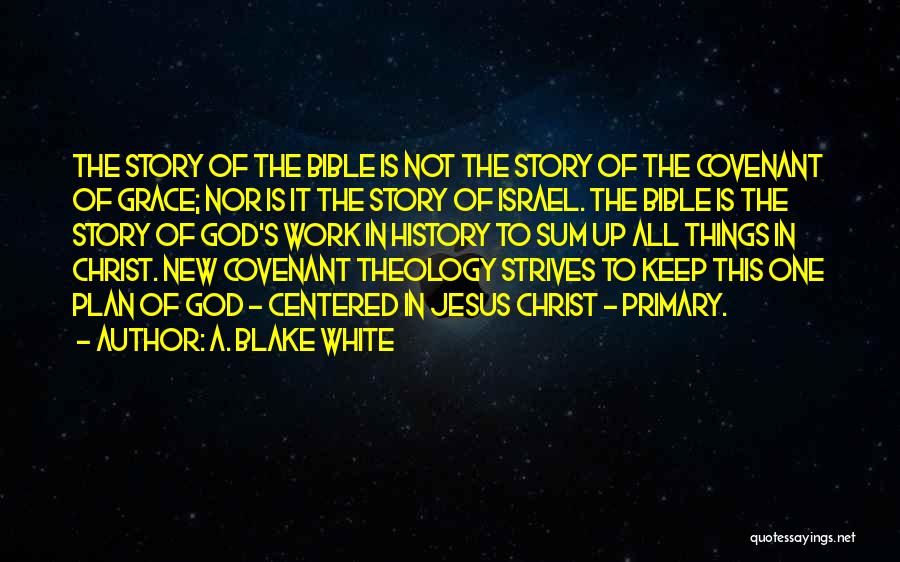
The story of the Bible is not the story of the covenant of grace; nor is it the story of Israel. The Bible is the story of God's work in history to sum up all things in Christ. New Covenant Theology strives to keep this one plan of God - centered in Jesus Christ - primary. — A. Blake White
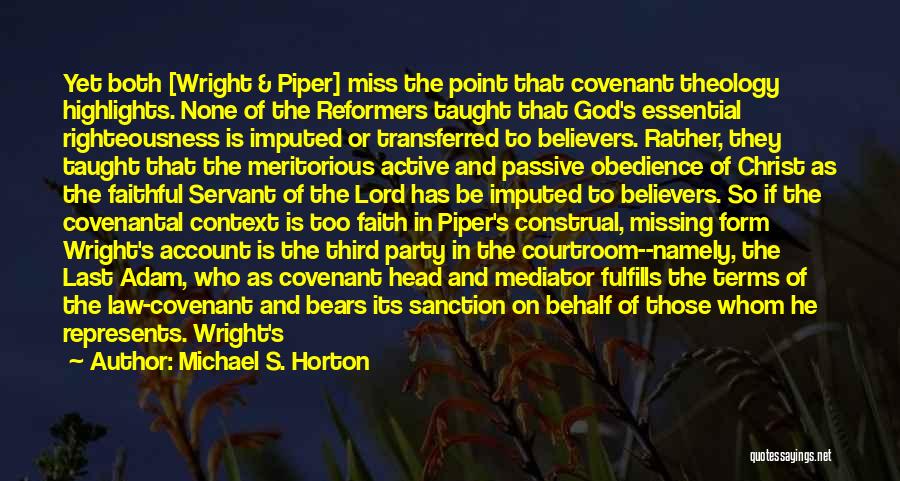
Yet both [Wright & Piper] miss the point that covenant theology highlights. None of the Reformers taught that God's essential righteousness is imputed or transferred to believers. Rather, they taught that the meritorious active and passive obedience of Christ as the faithful Servant of the Lord has be imputed to believers. So if the covenantal context is too faith in Piper's construal, missing form Wright's account is the third party in the courtroom--namely, the Last Adam, who as covenant head and mediator fulfills the terms of the law-covenant and bears its sanction on behalf of those whom he represents. Wright's objections can be properly addressed not by bracketing covenant theology but only by offering a different covenant theology. P.26-27 — Michael S. Horton





